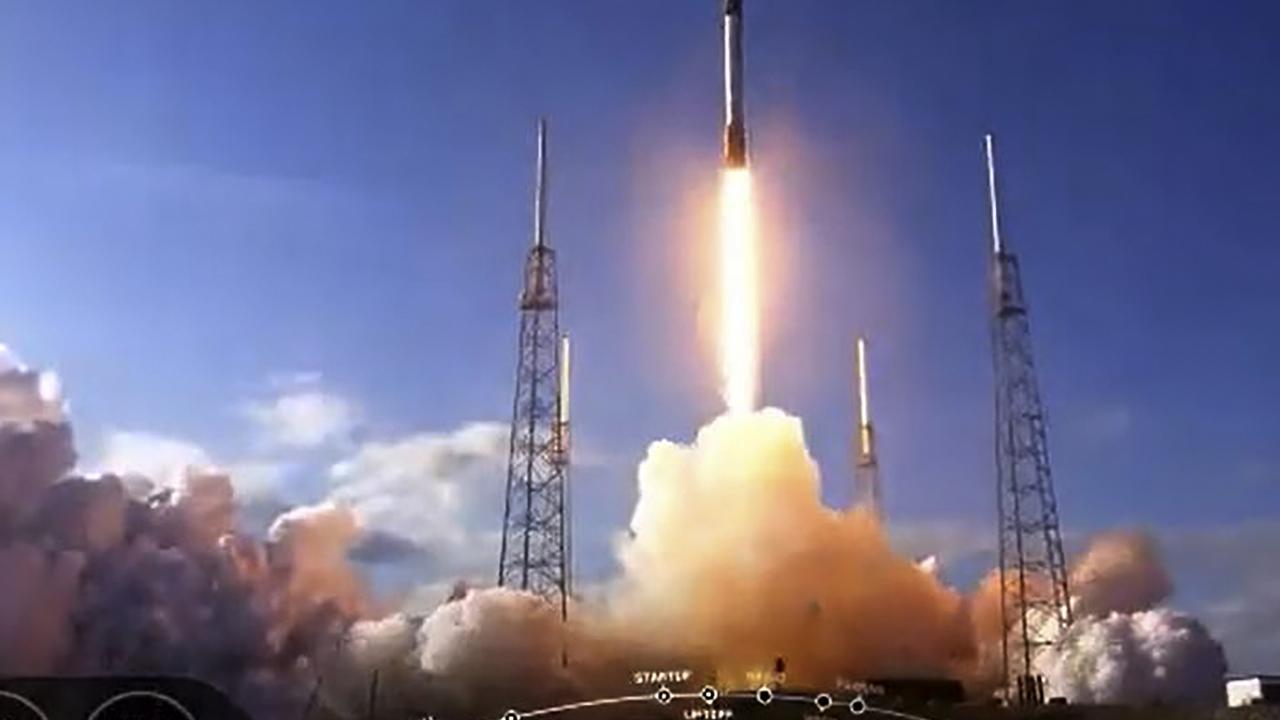KPMG says the government should proactively recruit skilled migrants with offers of fast-tracked visas
KPMG says Australia needs to boost its skilled migrant intake even further, and should deputise recruiters to go and search out the best and brightest for fast-track visa status.

Business
Don't miss out on the headlines from Business. Followed categories will be added to My News.
Australia should boost its skilled migrant intake by more than a quarter of a million people over the next five years, create a new “digital nomad” visa, and even proactively target experts in their field and attempt to convince them to migrate, professional services firm KPMG says.
And not only that, we should ask those migrants who else they reckon should come too.
In a submission to the federal government’s Department of Home Affairs, KPMG says while the increase in permanent migration visas from 160,000 to 190,000 announced at the Jobs and Skills Summit in September was welcome, more needs to be done to address skills shortages particularly in areas such as cyber and clean energy.
The firm says a 265,000 migrant increase, starting with another 25,000 people this financial year and an additional 60,000 for four further years, would boost real GDP by almost $30bn.
“Australia must regain its place as one of the most attractive skilled migrant destinations in the world if our economy is to remain competitive and achieve real productivity and wages growth,’’ KPMG says in its report, A Migration System for Australia’s Future.
“The permanent and employer-sponsored skilled visa systems have ongoing challenges for migrants and employers due to migration cuts before Covid-19, the exodus of temporary workers due to border closures, short term visas with no or protracted pathways to permanency, outdated and restrictive occupation lists, poor market testing and burdensome administration.’’

KPMG has made 16 recommendations in all, with one of the more innovative approaches suggested being the targeting of high value individuals, who can then themselves also suggest other potential skilled migrants.
It suggests the cyber sector in particular could benefit from this approach, with the nation currently hamstrung by a lack of experienced graduates and our geographic remoteness from major IT markets.
“One approach of addressing these challenges could be to leverage the Global Talent Visa by directly approaching leading professionals from overseas; for example cyber experts, who could migrate to Australia,’’ KPMG says.
“Along with their own expert knowledge, these professionals could then nominate teams of other experts to bring with them in order to address skills gaps in the sector.’’
KPMG says the Global Talent Visa is complex to navigate and the process is lengthy. It has been reported previously that in its first full year of operation in 2019-20 the vast, majority of the successful applicants were already living in Australia, and it has consistently fallen short of its targeted intake.
KPMG’s suggested model would involve pre-approved recruiters identifying candidates, and “invit(ing) the to apply for the pre-approved … visa which would be issued subject to mandatory health and character checks’’.
“To further leverage from this streamlined pathway, the pre-approved applicant would also be invited to nominate similarly qualified experts in the priority occupation.
“This approach recognises that there is often a community of experts in certain priority occupations.’’
The firm is also suggesting Australia needs to make itself more attractive for “digital nomads”, keen to “deliver their talent in a globally agile manner, without being tied to a single employer’’.
“A Digital Nomad Visa should be considered that provides unrestricted work rights for up to 90 days with scope to extend for a further 90-day period,’’ KPMG says.
“This visa pathway could complement the existing Working Holiday Visa program but would not be age restrictive and be available to all passport nationalities.’’
Indonesia already has a digital nomad scheme for Bali with foreigners able to work there tax free for six months, and there are discussions about a five-plus-five year visa along similar lines.
Many other countries offer digital nomad visas with varying eligibility criteria, with one of the more esoteric the Norwegian version which allows you to live in the remote archipelago of Svalbard for as long as you like – however you do pay Norwegian taxes after six months.
KPMG has also suggested increasing the top age threshold for company-sponsored permanent residency from 45 to 50 years of age.
Other recommendations include:
– introducing a new Sponsored Project Visa, valid for 12 months, for targeted short-term projects
– introducing a universal four year visa for the Temporary Skilled Visa program, doing away with the two year visa
– extending targeted programs such as the Pacific Australia Labour Mobility program to address the need for semi-skilled and unskilled labour in some sectors, and
– developing a whole-of-government skilled migrant portal to provide information for applicants.
Originally published as KPMG says the government should proactively recruit skilled migrants with offers of fast-tracked visas



